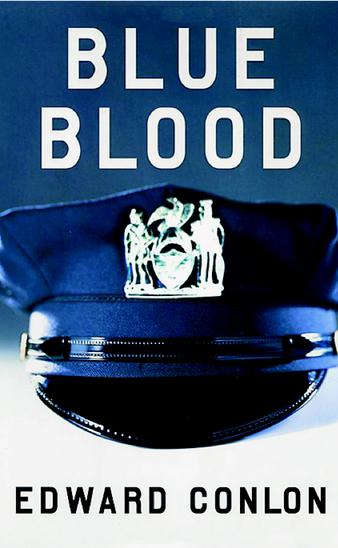It’s something of a shame then that Edward Conlon’s thoughtful, epic and, yes, beautiful memoir, Blue Blood, did not hit bookstores in that brief period after 9-11. There is a long and colorful history of New York police books, but this book is the Moby Dick of them all. Steeped in rich lyrical description and powered by a curious and discursive mind, Blue Blood explains the job and its history like no book before, ranging from high-profile drug busts like the French Connection, all the way down to the mundane details of filling out booking paperwork.
A Bronx native with three generations of law enforcement in his family tree, Conlon came to the job somewhat reluctantly. His great grandfather, Patrick Brown, used to “carry the bag” on Atlantic Avenue, meaning he collected payoffs. Conlon’s uncle was a lifer on the force, and his father was an FBI agent. Young Edward, however, rejected this life at first, going to Harvard University and deciding at a young age that he wanted to be a writer. If anything, he was going to wind up on the wrong side of the law: a professional goof-off with a knack for getting into fights.
Something changed, though, and Blue Blood shows how sometimes in life a calling becomes one accidentally. After a detour in legal aid, Conlon enrolled in the police academy at age 30, the median age for new recruits. By 1995, the Harvard grad was walking a beat on East 156th Street in the South Bronx, a neighborhood where housing projects have been gutted of hope by the drug trade.
Blue Blood describes Conlon’s early experience on the force, circling back to bring in choice bits of his family’s Irish-American past, NYPD history, New York City geography and dense procedural description. This meandering format highlights Conlon’s gifts as a writer. True to his Irish heritage, Conlon is a terrific anecdotal narrator, and Blue Blood occasionally feels like one long after-hours tale that runs from incident to incident until the morning light has begun to show.
Conlon’s tales run the gamut from high farce to tragedy, and this up and-down, side-to-side emotional ride makes Blue Blood a draining read. There is less sliding sideways through intersections and leaping over chain-link fences than there are visits to unhappy homes, roundups of junkies who are so far gone that the point of punishing them isn’t entirely clear. As Conlon writes, these interactions occur with people “at a very low point in their lives: They’ve just been robbed, or are having severe chest pains or their husband is dead in the back bedroom. You are less the bearer of bad news than the proof of it.”
Conlon desperately wants to explain the procedures of his job, but what Blue Blood does best is portray how a cop marshals and channels his emotions. One of the great delights of reading this book is watching how the desire to do good bubbles up in Conlon at the same time that his understanding of what “good” means grows ever more complicated. Conlon’s response to this quandary is to become a tactical specialist, to know the job inside out. Thanks to this watchful self-scrutiny, Blue Blood puts us in the shoes of an officer as never before. Here is Conlon describing a stakeout: “Watching isn’t always easy. I’ve spent hours on tar rooftops, crouched down till my legs cramp, sweating, shivering, wiping the rain from my binoculars every ten seconds. … You walk up dirty stairs to a dirty roof to watch a dirty street. At night, even the light is dirty, as the sodium-vapor streetlights give off a muddy yellow haze. But when it’s happening, sometimes, you realize how perfect your concentration is, you feel the cool, neutral thrill of being completely submerged in your task.”
It’s remarkable how closely this passage resembles a riff on writing—the concentration, the Zen-like trance, the boredom and tedium. Which gives rise to the question: Is Conlon a writer who works as a police officer, or a cop who writes? It seems like the highest praise of Conlon the cop and Conlon the writer that they appear to be one and the same. He is watchful, diligent, exact and always preoccupied by the morality of what he does.
Read Blue Blood. It is not only a cop’s Moby Dick, it is an American Crime and Punishment.









